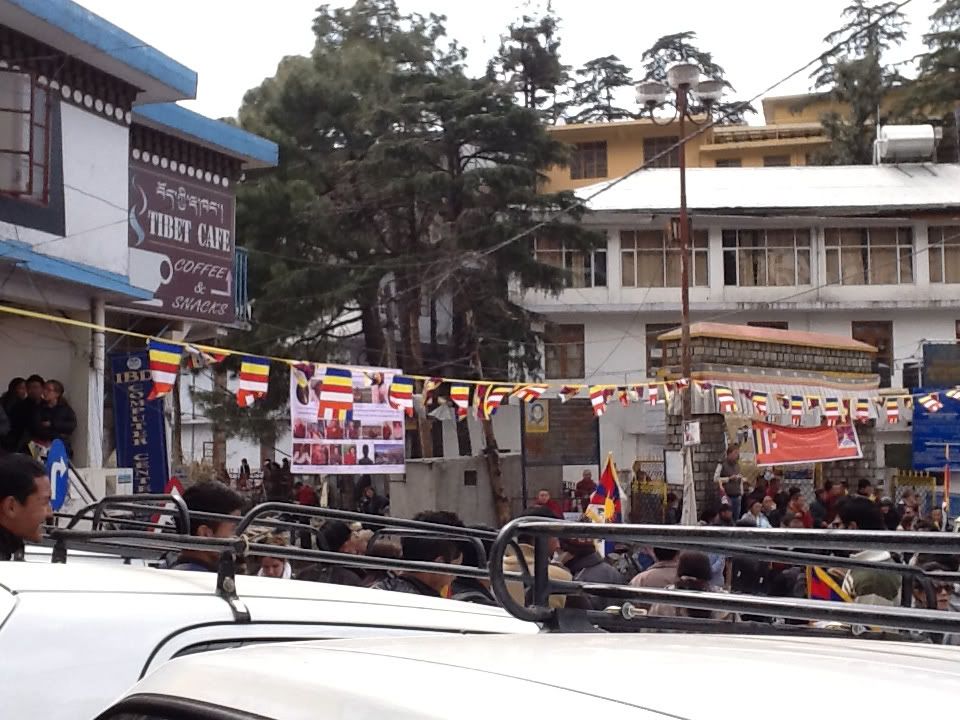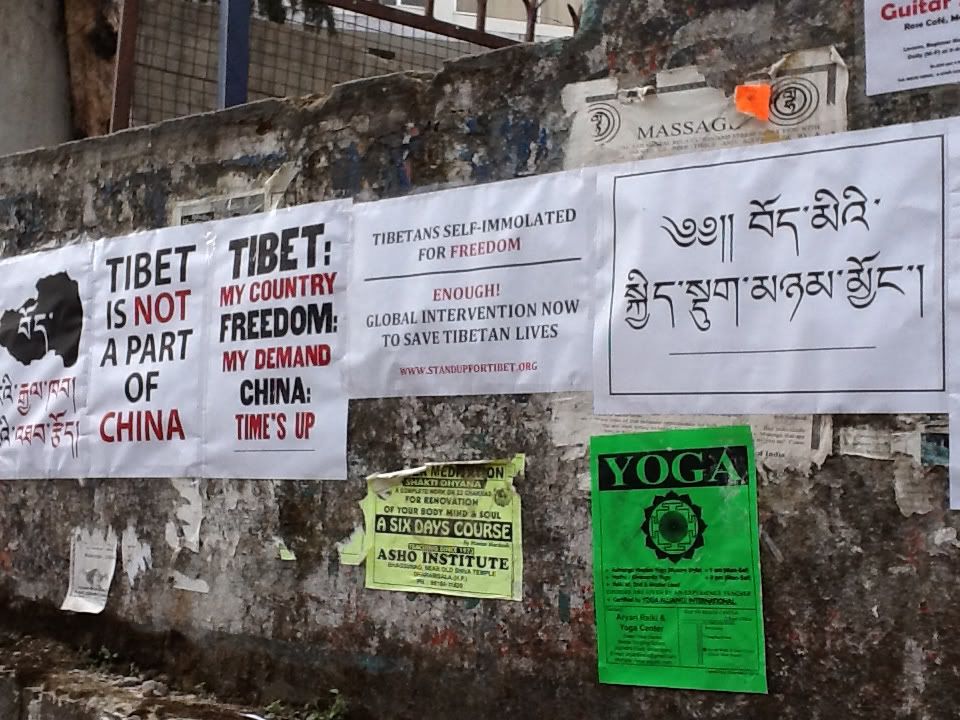I missed the speeches and assembly at Namgyal Temple, but joined the crowd in a march. It occurred to me that this day is actually every day here and elsewhere for Tibetans all around the world. Admittedly, you won't hear Tibetan kids discussing the events that led up to the invasion, but that they're aware of not having a home of their own and living in someone else's country as basically the biggest party of house guests for the past fifty plus years is indisputable.

Every Tibetan I know is profoundly grateful for India's hospitality, but there is an overarching underpinning of longing for a land of their own and the knowledge that self-determination was wrested from them by one of the most repressive regimes in history runs deep.
"Rangzen" means "freedom", "independence" and so forth, but the middle way alternative is quite a bit less than that. The solution developed by His Holiness struck many as pragmatic and reasonable, but the Chinese Communist Party is anything but reasonable and for the second time in late twentieth century history, the Tibetans have paid for naïveté in trusting the oligarchs of CCP. The middle way has come to be seen as a boondoggle at best, capitulation at worst and it remains to be seen whether the younger generation continues to pursue this policy after His Holiness has passed from this earthly realm or if there is renewed clamor for full independence.

To be sure, most Tibetans will not speak negatively of His Holiness's policies or decisions, but there are more voices that are asking serious questions and looking for a truly free Tibet. Jamyang Norbu, Lhasang Tsering and others continue to voice their criticisms. The Tibetan Youth Congress is likewise a vital group that His Holiness once referred to as "my loyal opposition". And of course, Students for Free Tibet's slogan remains "Tibet will be free".
I've written about this here before, and some would say more stridently or emphatically perhaps, but I'm thinking that today its enough to reflect quietly on what the occupation of more than half a century means to the people who are drive to flight or self-immolation. With each passing year, the vigils and protests grow more solemn and days that were traditionally days of celebration turn to periods of mourning.
I've heard the refrain "there are so many other problems in the world" as an answer to why people tend to support other causes, but I continue to be passionate about this because it stands as one of the most, if not the most egregious example of global apathy in the face of an invasion and subsequent occupation (and cowardice; the Chinese leadership routinely tells the rest of the world to fuck off butt out, but no one plays similar hardball with them) but also, perhaps the ramifications of that invasion opened the door for further displays of similar invasion-occupations (not the least of which might be the U.S. invasions of Vietnam, Iraq, and Afghanistan as the three that come most readily to mind; substitute "liberation of the Han minorities" with "bringing them democracy" and the flavor isn't so different). In any event, if the Chinese can invade and occupy another nation, why can't anyone else?
The issue of Tibet is striking in its repercussions. It also shows what happens when the invader really doesn't care what anyone else thinks. It's arguable that if the Nixon, Bush and now, Obama administrations were more ruthless, the aforementioned invasions would have resulted in new U.S. territories. Well, obviously, we're not done with Afghanistan yet...one wonders if there isn't a cadre in D.C. that asks on a regular basis how China does it.
To be sure, given how much our mainstream press is muzzled by corporate interests, dissent routinely stifled by police action and the administration's crack-down on whistlblowers, the only thing that's missing are gulags/lao gai. Oh, wait, we have more individuals per capita in prison than anyone...including, um, we, the People's Republic of China! Cool! But fortunately, there is an alternative press, there are people willing to voice dissent and face imprisonment and if we think that's tough to do in the U.S., how much more so is it in Tibet. Essentially, supporting Tibet is standing tall with others who refuse to knuckle under and want to speak truth to power. If you live in an area that doesn't have a Tibetan population, throw some love to the organizations I've mentioned before.
If you do live in an area that does have a substantial number, consider getting involved or just show a little support and solidarity. Go to a vigil, listen deeply to stories of the exile.
If you have other causes to support, I'm right with you. But I'm here and it would be a gross disservice not to convey the plight of this community and provide ways of contributing to easing that plight. Moreover, you can be sure there's more to come.
No comments:
Post a Comment